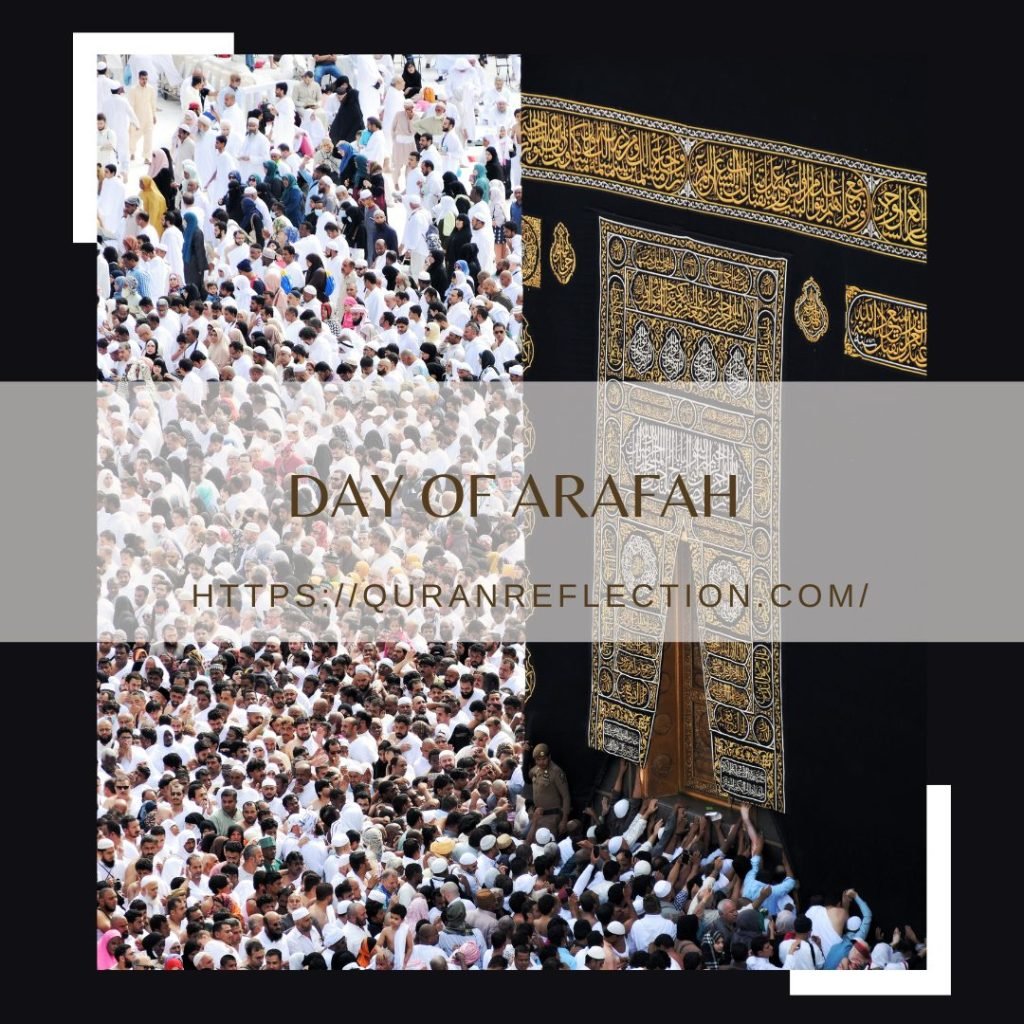Day Of Arafah
Introduction:
The Day of Arafah holds significant significance in the Islamic faith and is regarded as one of the maximum important days in the Islamic calendar. It falls on the ninth day of the Islamic month of Dhul-Hijjah, which is the very last month of the lunar calendar. The Day of Arafah is marked by diverse rituals and acts of worship, and it’s far an afternoon of incredible religious significance for Muslims worldwide. In this newsletter, we can explore the importance of the Day of Arafah, its rituals, and solution to a few frequently requested questions associated with this auspicious day.
Importance Of The Day Of Arafah:
The Day of Arafah holds vast significance as it’s far intently related to the Hajj pilgrimage, that’s one of the 5 pillars of Islam. Arafah is a sizable plain located outdoors in the holy town of Mecca, Saudi Arabia. it’s miles in this day that millions of pilgrims accumulate at the obvious of Arafah to perform the maximum important ritual of Hajj, called “Wuquf.” The Wuquf includes standing in supplication and prayer from noon until sundown, in search of forgiveness and blessings from Allah.
In step with Islamic subculture, the Day of Arafah commemorates the final sermon of Prophet Muhammad (peace be upon him), delivered at some point during his farewell Hajj pilgrimage in the year 632 CE. The sermon, referred to as the “Sermon of Arafah,” contained profound teachings and guidance for Muslims. It emphasized the importance of cohesion, brotherhood, justice, and the pursuit of righteousness. It served as a complete blueprint for a just and harmonious society.
The Day of Arafah is also considered an afternoon of forgiveness, mercy, and redemption. it’s far believed that honest repentance and acts of worship accomplished on this day can cause the forgiveness of sins and the elevation of one’s spiritual status. Muslims around the world examine nowadays with devotion and interact in numerous acts of worship, searching for divine blessings and forgiveness.
Rituals And Acts Of Worship:
Wuquf:
The important ritual of the Day of Arafah is Wuquf, wherein pilgrims stand on the apparent Arafah from noon until sundown, engaging in supplication, reflection, and excessive worship. it’s far believed that this act is a way of looking for forgiveness and drawing towards Allah.
Fasting:
It’s far incredibly encouraged for Muslims who aren’t acting Hajj to examine voluntary fasting on the Day of Arafah. Fasting in this day is taken into consideration as a means of expiating sins and is enormously meritorious. The Prophet Muhammad (peace be upon him) is reported to have stated, “Fasting on the Day of Arafah absolves the sins of the previous year and the coming 12 months.”
Dhikr And Du’a:
Muslims interact in considerable remembrance of Allah (dhikr) and heartfelt supplications (dua) on the Day of Arafah. They are seeking forgiveness, mercy, and blessings for themselves, their households, and the entire Muslim Ummah.
Reflection And Contemplation:
The Day of Arafah offers a possibility for Muslims to mirror their lives, are searching for self-improvement, and evaluate their relationship with Allah. it is a time for introspection, looking for forgiveness for mistakes, and making resolutions for the future.
Conclusion:
The Day of Arafah is an afternoon of monstrous importance in Islam, marking the top of the Hajj pilgrimage and supplying plentiful possibilities for forgiveness, mercy, and nonsecular elevation. it’s miles a time for Muslims to interact in acts of worship, mirrored image, and in search of closeness to Allah. through rituals such as Wuquf, fasting, supplication, and self-evaluation, Muslims attempt to acquire forgiveness for their sins and fortify their reference to the Divine. irrespective of whether one is appearing in Hajj or now not, the Day of Arafah holds profound meaning and offers a chance for private boom, renewal, and non secular rejuvenation for Muslims around the world.
FAQ:
Q: Is fasting on the Day of Arafah compulsory for Muslims?
A: Fasting on the Day of Arafah isn’t compulsory for people who are not appearing for Hajj. but, it’s far more notably endorsed and carries super praise. it’s miles considered a Sunnah (the practice of the Prophet Muhammad) and a way of expiating sins.
Q: Can non-pilgrims benefit from the benefits of the Day of Arafah?
A: sure, non-pilgrims can enjoy the blessings of the Day of Arafah by means of engaging in acts of worship inclusive of fasting, considerable supplication, and in search of forgiveness. it is a day of wonderful religious significance for all Muslims, no matter whether they are performing Hajj or no longer.
Q: What are the virtues and blessings of observing the Day of Arafah?
A: Gazing the Day of Arafah holds several virtues and blessings. it’s far believed to expiate sins, raise one’s religious status, and supply forgiveness and mercy from Allah. it is also an opportunity for self-mirrored image, repentance, and searching for closeness to the writer.
Q: Can Muslims outside of Saudi Arabia observe the Day of Arafah?
A: Surely. Muslims globally can study the Day of Arafah irrespective of their geographic vicinity. they are able to engage in acts of worship which include fasting, supplication, and reflection, seeking the benefits and forgiveness related to this sacred day.











